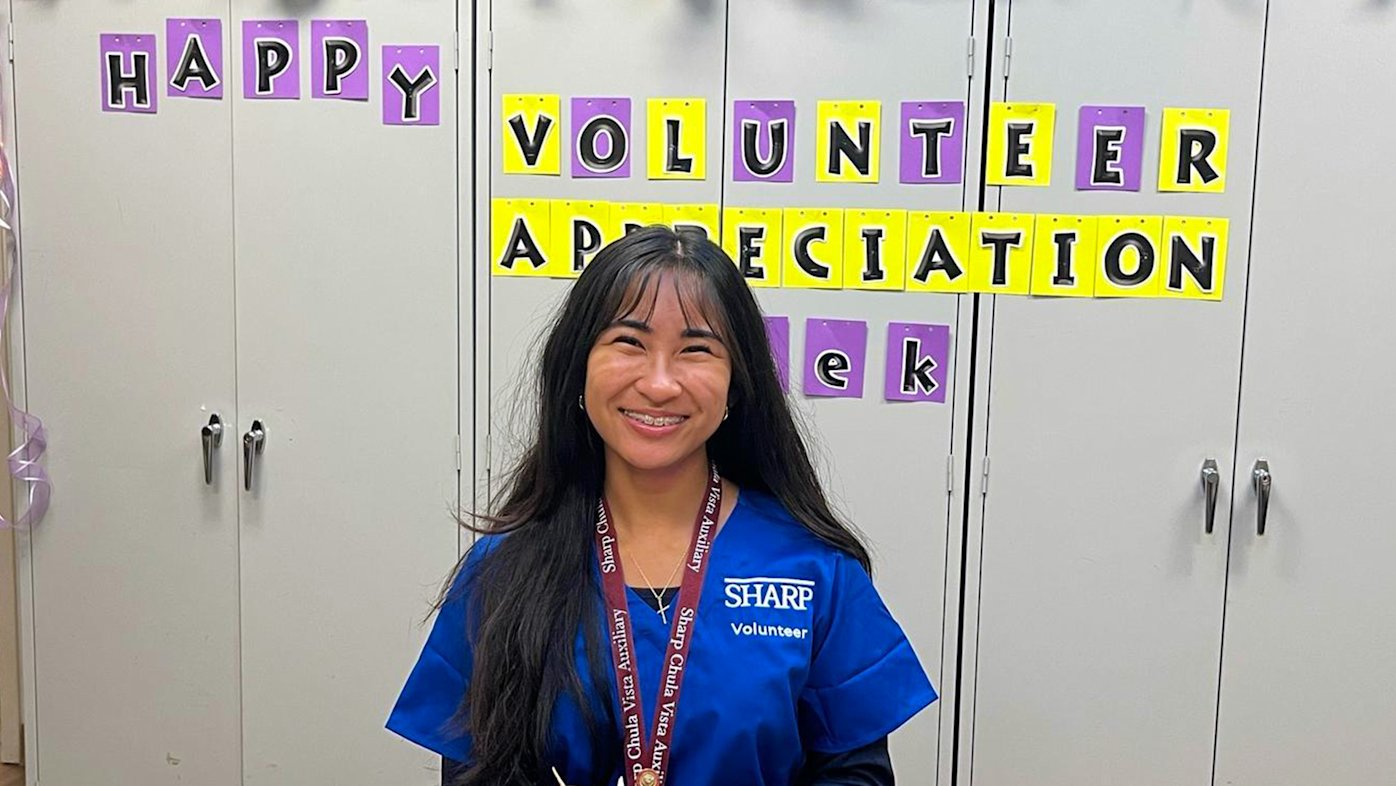
Student volunteer brings joy with wishing cranes
Carefully folded origami cranes carry messages of hope and healing, as one teen volunteer helps brighten patients’ days at Sharp Chula Vista Medical Center.
Over the past few years, many of us have been there: You start to have an unexplained, persistent dry cough; experience breathlessness; and may even feel tightness in your chest. You might begin to wonder whether the symptoms you are having are due to COVID-19.
What doesn’t normally come to mind, however — especially for nonsmokers — is the possibility that those symptoms might indicate underlying lung cancer.
“COVID-19 symptoms will arise much faster at the onset, and will be much quicker to worsen or improve,” says Dr. Norman Chen, a diagnostic radiologist affiliated with Sharp Chula Vista Medical Center. “Upper respiratory symptoms and loss of smell and taste are more specific to COVID-19, while coughing up blood and unexplained weight loss are more associated with lung cancer.”
While some of the shared symptoms of COVID-19 and lung cancer may be hard to differentiate, this overlap could lead to someone sharing their concerns with their doctor and getting screened for lung cancer. And early detection is vital because it is easier to treat lung cancer — the leading cause of death in the U.S. among all cancer-related deaths in men and women — when it’s found at an earlier stage.
Symptoms of COVID-19
COVID-19 symptoms can begin to develop anywhere from 2 to 14 days after exposure to the coronavirus. According to the Centers for Disease Control and Prevention (CDC), symptoms of COVID-19 can include:
Fever or chills
Cough
Shortness of breath or difficulty breathing
Fatigue
Muscle or body aches
Headache
New loss of taste or smell
Sore throat
Congestion or runny nose
Nausea or vomiting
Diarrhea
Symptoms of lung cancer
At times, symptoms of lung cancer may not appear until the disease has advanced or spread. As it progresses, symptoms can be more severe but can also vary from person to person.
The following are common symptoms of lung cancer, according to the American Cancer Society:
A cough that does not go away or gets worse
Coughing up blood
Chest pain that is often worse with deep breathing, coughing or laughing
Hoarseness
Loss of appetite
Unexplained weight loss
Shortness of breath
Feeling tired or weak
Infections such as bronchitis and pneumonia that don’t go away or keep coming back
New onset of wheezing
Early detection is vital
According to Dr. Chen, if you have a cough or other symptoms that persist for more than a few weeks, you should consider talking with your doctor about whether lung cancer could be a significant concern.
“Even if you don't have any symptoms at all, there are well-developed guidelines for lung cancer screening designed to identify early-stage, treatable cancers in high-risk patients before they ever develop any symptoms," he says. "Early detection remains the key to effective treatment for all types of cancer.”
The American Cancer Society recommends yearly low-dose lung CT scans for people ages 50 to 80 who currently smoke or formerly smoked and have a 20 pack-year or more smoking history — meaning, they smoked an average of one pack per day for 20 years, two packs per day for 10 years, and so on.
People who are at higher risk for COVID-19 — including older individuals with underlying medical conditions or people who are immunocompromised — should stay up to date on COVID-19 vaccination. In fact, the CDC recommends everyone age 5 and older get an updated COVID-19 vaccine to protect against serious illness. Children ages 6 months to 4 years may need more than one updated COVID-19 vaccine to be up to date.
Talk with your doctor about any concerning symptoms, COVID-19 vaccination, and whether lung-cancer screening is right for you.
Sharp HealthCare offers lung cancer screening options across San Diego County for patients who qualify.
Our weekly email brings you the latest health tips, recipes and stories.